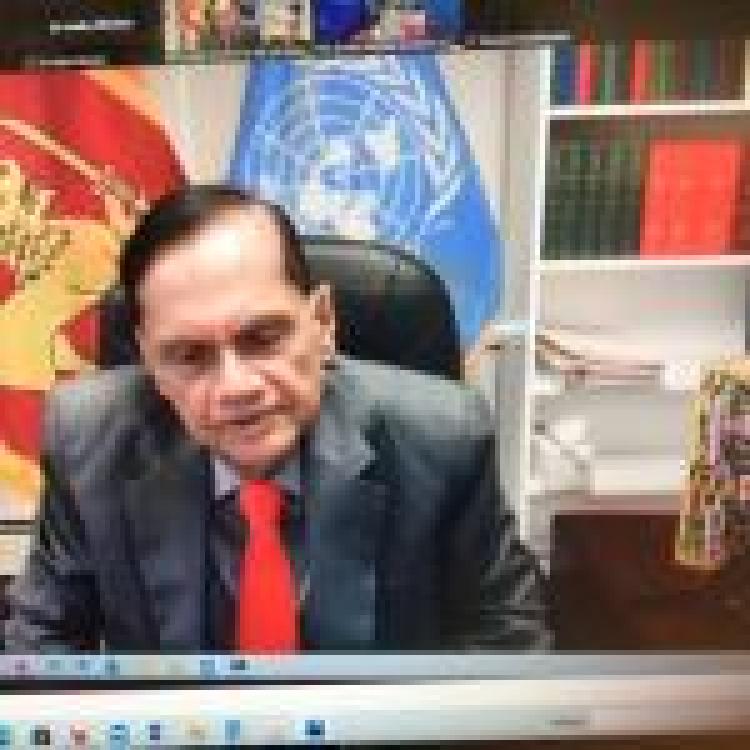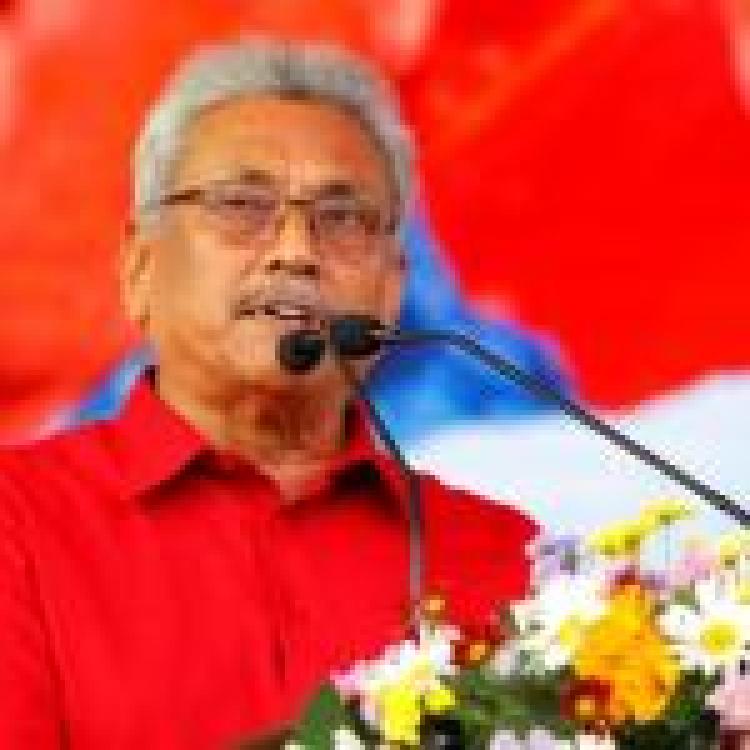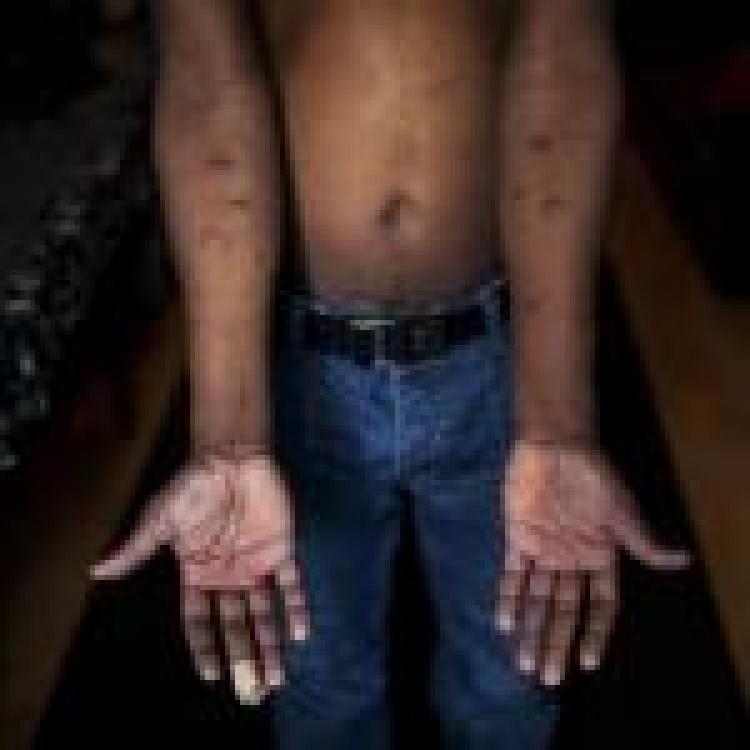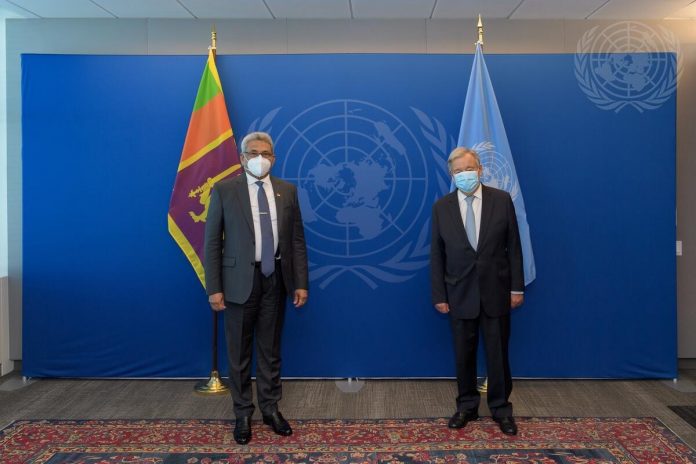
Speaking to UN Secretary-General António Guterres, Sri Lankan President, and accused war criminal, Gotabaya Rajapaksa claimed that he would take "immediate action" to address the issues of enforced disappearances and "would not hesitate to grant a presidential pardon to the Tamil youths who have been in custody for a long time".
The statement comes as Families of the Disappeared have continued their protest for over 1,635 days and have expressed deep scepticism over the ability of the government's Office of Missing Person. Human Rights Watch has highlighted in a recent statement how the Rajapaksa regime has undermined the independence of the institution through political appointments. Sri Lanka has the second-highest number of cases registered with the United Nations Working Group on Enforced or Involuntary Disappearances with Gotabaya Rajapaksa being implicated in white van abductions of government critics. An estimated 100,000 people have been forcibly disappeared. Whilst such disappearances affect all communities on the island, the vast majority of victims, particularly during the final phase of the war, were Tamil.
The President's Media Department maintained that such efforts would include to expedite the issuance of death certificates.
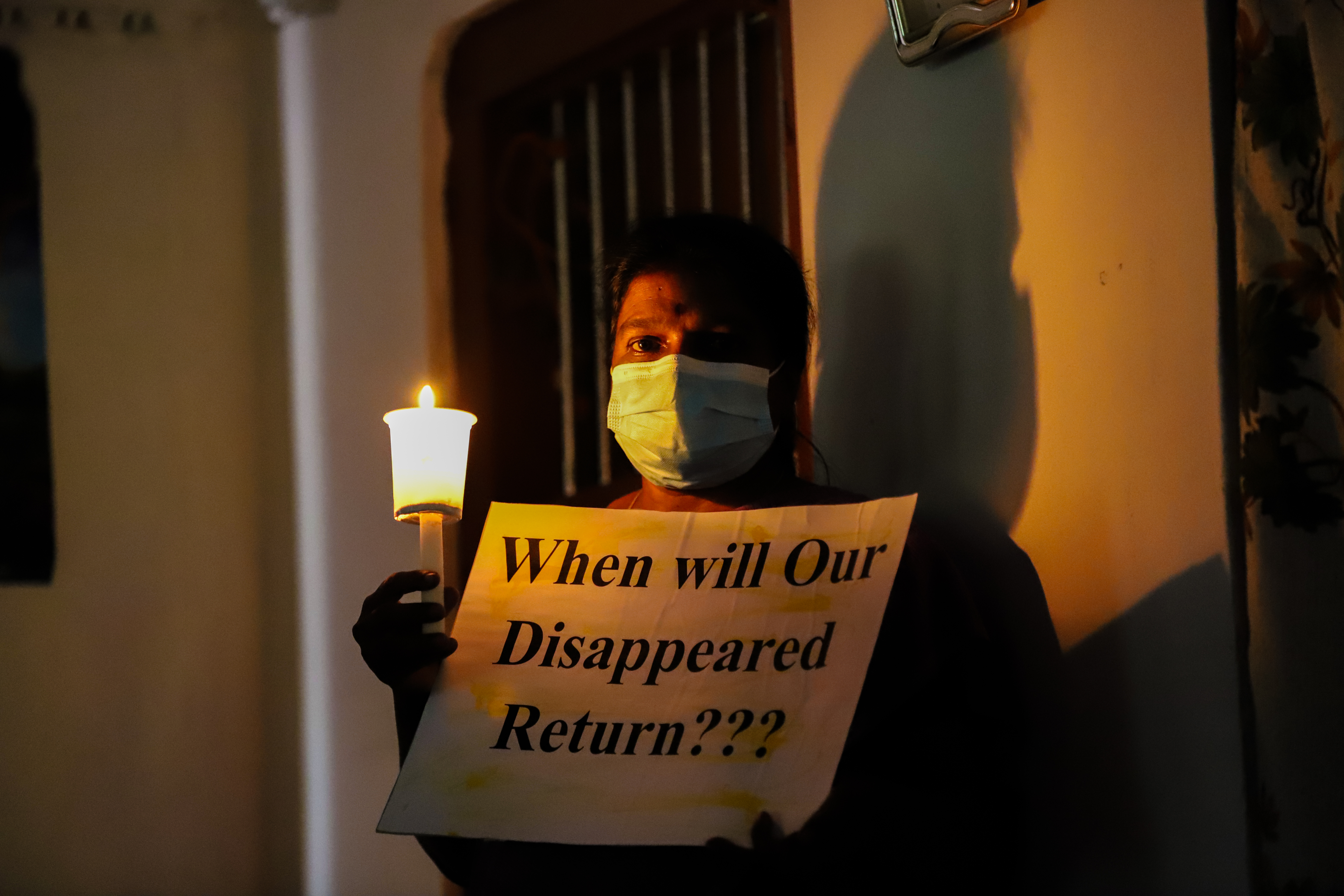
“How can we accept the claim by the President of Sri Lanka that no one is alive, we [...] had been eyewitnesses when our loved ones were handed over to the Sri Lankan army in 2009?” a statement from the Families of the Disappeared read.
Thambirasa Selvarani, President of the Amparai District Missing Persons' Association, has made a similar call stating that families of the disappeared "don't have any hope in any domestic mechanisms."
"We trust that the International Criminal Court (ICC) is the only solution for justice. We will continue our protests until our demands are met," he added.
Read more here: ‘The international community must accept that the OMP is incapable’ - Families of the Disappeared
Prevention of Terrorism Act
The statement also follows an increase in the number of Tamils and Muslims arrested under Sri Lanka's draconian Prevention of Terrorism Act (PTA) and expansion of the measure under the guise of "deradicalisation".
Commenting on the PTA, Sri Lanka’s former human rights high commissioner, Ambika Satkunanathan, noted:
“historically, Tamils, dissenters, those critical of the government of the time, and anyone calling for accountability for human rights violations have been labelled LTTE or portrayed as threats to national security” and that "such labelling is done to create an environment the enables the state to justify any punitive action taken against them."
Domestic response
The President maintained his belief in a domestic mechanism to address these issues and invited the Tamil diaspora to partake in such discussions however he asserted that there was “no room for separatism to re-emerge in Sri Lanka” adding that the state would be “vigilant about religious extremism.”
In March, the UN Human Rights Council (UNHRC) adopted a resolution against Sri Lanka's rights record, giving the UN body a mandate to collect evidence of war crimes committed during the final stages of the armed struggle when Gotabaya Rajapaksa’s served as Defence Secretary under his brother, then-President Mahinda Rajapaksa. Sri Lanka’s military offensive in 2009 stands accused of executing surrendering Tamils, sexual violence and the deliberate shelling of hospitals.
On September 27th the government will welcome a European Union delegation to examine whether to end the GSP Plus tariff concession over allegations of rights abuses.
Read more here

